Page Content 2016-04 eiNewsletter 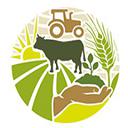 joint Newsletter of the Networks joint Newsletter of the Networks
e+i and A&FS  Dear members of the e+i as well as the A&FS network, We are very happy to present you already with the 3rd edition of our joint newsletter and wish you good reading.
Peter Beez Felix Fellmann
Focal Point e+i Focal Point A+FS
e+i Reminder: Support by external experts
SDC e+i network members can use various experts up to one day of work (no bureaucracy, just inform the FP e+i) for thematic support such as commenting on documents like TORs, webinar on approaches and methodologies, brief literature overview on a certain topic, etc. If you need more time, ask ahead, maybe it is of general interest for the network:
Support PSD / FSD
Support VSD
Andrew WilsonProject Manager - MarketMakers Project , HELVETAS Swiss Intercooperation (Bosnia and Herzegovina) 
What do you love about your work, what is special about it?
For me, the two most special things about my job are first, the opportunity it gives for creativity, and second the real difference it makes in people’s lives. I get really excited by creativity and new ideas, and love finding a chance to turn a long-standing problem into an opportunity for progress. Even better, though, is when one of those ideas starts working and I get to meet people whose lives have been meaningfully changed as a result.
Which is / are your favorite instrument(s)?
Since my current position focuses on increasing employment in Bosnia and Herzegovina, an upper-middle income country, I really like the market systems development approach. While it isn’t the final solution to all the world’s development problems, it is a strong framework to reduce poverty or stimulate employment growth. If we do it right, it also provides entry points to effectively promote better governance and greater gender and social equity, and that is something we are focusing on a lot at MarketMakers.
Your message for your colleagues:
Working in the development sector has its fair share of difficulties and disappointments, and we all get frustrated sometimes. For me, the best remedy is to take a step back and remind myself how lucky I am to have a job that supports my family comfortably, challenges me intellectually and allows me to make a difference for others. That is a rare privilege. Marc BlochFood Security Manager for the Horn of Africa, SDC Nairobi  What do you enjoy most about your current position? As Food Security Manager for SDC I currently have 3 main tasks: 1) develop new programs/projects for the Horn of Africa region
2) coach National Programme Officers
3) provide technical support and advise to national partners I would like to point out two points I like in particular compared to other jobs I had in the past: First, I don’t have any management responsibilities in my current job and can fully concentrate on technical issues related to pastoralism, resilience and institutional development. Every working day poses new challenges and I have much less routine. I also have more and closer contact with my counter parts than in my previous positions as a senior manager. Second, I closely work with many senior representatives from national and international partners (regional ministers, deputy governors, etc.) and do a lot of high level strategic work. Through this my work has a wider impact than in previous positions. How does a typical working day of yours look like? I like to be in the office early, before traffic builds up and all my colleagues arrive. This gives me time to go through my e-mails and get them out of my way or to do some reading. I often have meetings with one of our counter parts to discuss issues related to projects funded by SDC. During these meetings I provide technical advice on issues related to agriculture, food security and institutional development or present the SDC point of view and make sure that projects are in line with our strategies and principles. I try to be in the field at least once a month to be up to date with realities on the ground and to be able to better understand project challenges and problems. It is important for me to follow up on concrete tasks during these visits. In my view development takes place on the ground and not at the embassy. Then there are also periods when I spend a lot of time on the computer to finalize a credit proposal or work on another document. A significant part of a typical working day is reserved to give advice to my local colleges and coach them in their work. Where do you see the benefits of the A+FS network regarding your work? Having more than 20 years of experience in various sectors and all over Africa I am able to contribute to various discussions that take place within the A+FS network or to assist when a network member raises an issue or has a question.
To be a member of the network also allows me to be up to date with issues addressed by other network members to get information on interesting approaches or innovations in other SDC programs or to get links to information and web sites. In my view, the network contributes to a harmonized SDC approach and strategy in Food Security and guides us in our work. Last but not least, I can be in touch with people I have been working with in the past or know about their whereabouts.  22 Mar 2016  SDC e+i side event at the DCED Global Seminar in Bangkok: From 14.-16. March 2016, DCED held its Global Seminar. Around 130 participants from all over the world attended the Seminar, around 35 participants from SDC financed projects. The SDC e+i network organized a small side-event with the objective to bring together the network community, provide a space to exchange and network and share latest news around Results Measurement: (1) Swisscontact shared their experience with SenseMaker as a new methodology for capturing systemic change. (2) The SDC good practice paper: "Monitoring and Measuring Results in Private Sector Development" was presented and discussed. (3) HELVETAS Swiss Intercooperation shared and discussed preliminary findings of its study with the objective to define and elaborate what “right-sizing” MRM system means. SDC e+i side event at the DCED Global Seminar in Bangkok: From 14.-16. March 2016, DCED held its Global Seminar. Around 130 participants from all over the world attended the Seminar, around 35 participants from SDC financed projects. The SDC e+i network organized a small side-event with the objective to bring together the network community, provide a space to exchange and network and share latest news around Results Measurement: (1) Swisscontact shared their experience with SenseMaker as a new methodology for capturing systemic change. (2) The SDC good practice paper: "Monitoring and Measuring Results in Private Sector Development" was presented and discussed. (3) HELVETAS Swiss Intercooperation shared and discussed preliminary findings of its study with the objective to define and elaborate what “right-sizing” MRM system means.
>> for more information please contact Annick Vollmar
 23 Mar 2016 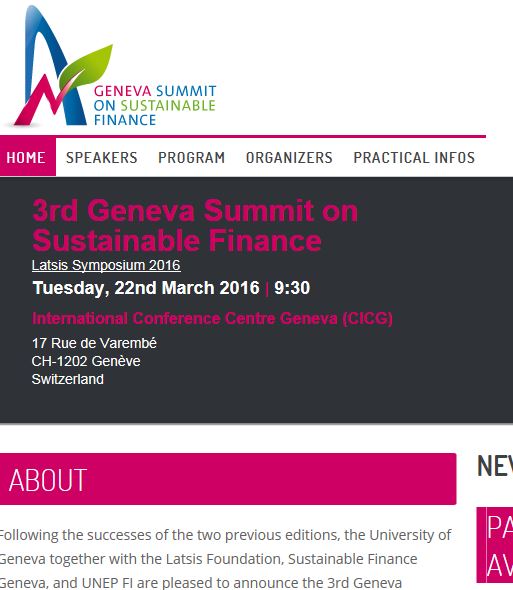 The programme and the presentations of the 3rd Geneva Summit on Sustainable Finance can be downloaded here. The event took place on 22nd March 2016. The programme and the presentations of the 3rd Geneva Summit on Sustainable Finance can be downloaded here. The event took place on 22nd March 2016.  23 Mar 2016 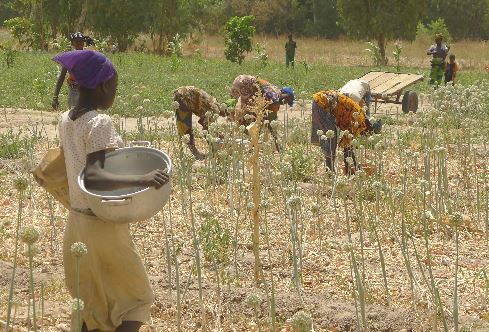 The Savings and Credit Forum on: Inclusive finance promoting high impact solutions for low income populations in rural communities:The PAMIGA model for improved access to water and energy The Savings and Credit Forum on: Inclusive finance promoting high impact solutions for low income populations in rural communities:The PAMIGA model for improved access to water and energy
was held on March 3, 2016. All the presentations can be downloaded here.  23 Mar 2016  The SCBF is SDC’s major public-private development partnership with the Swiss financial sector to promote financial inclusion in the South. Activities under management since inception in 2011: 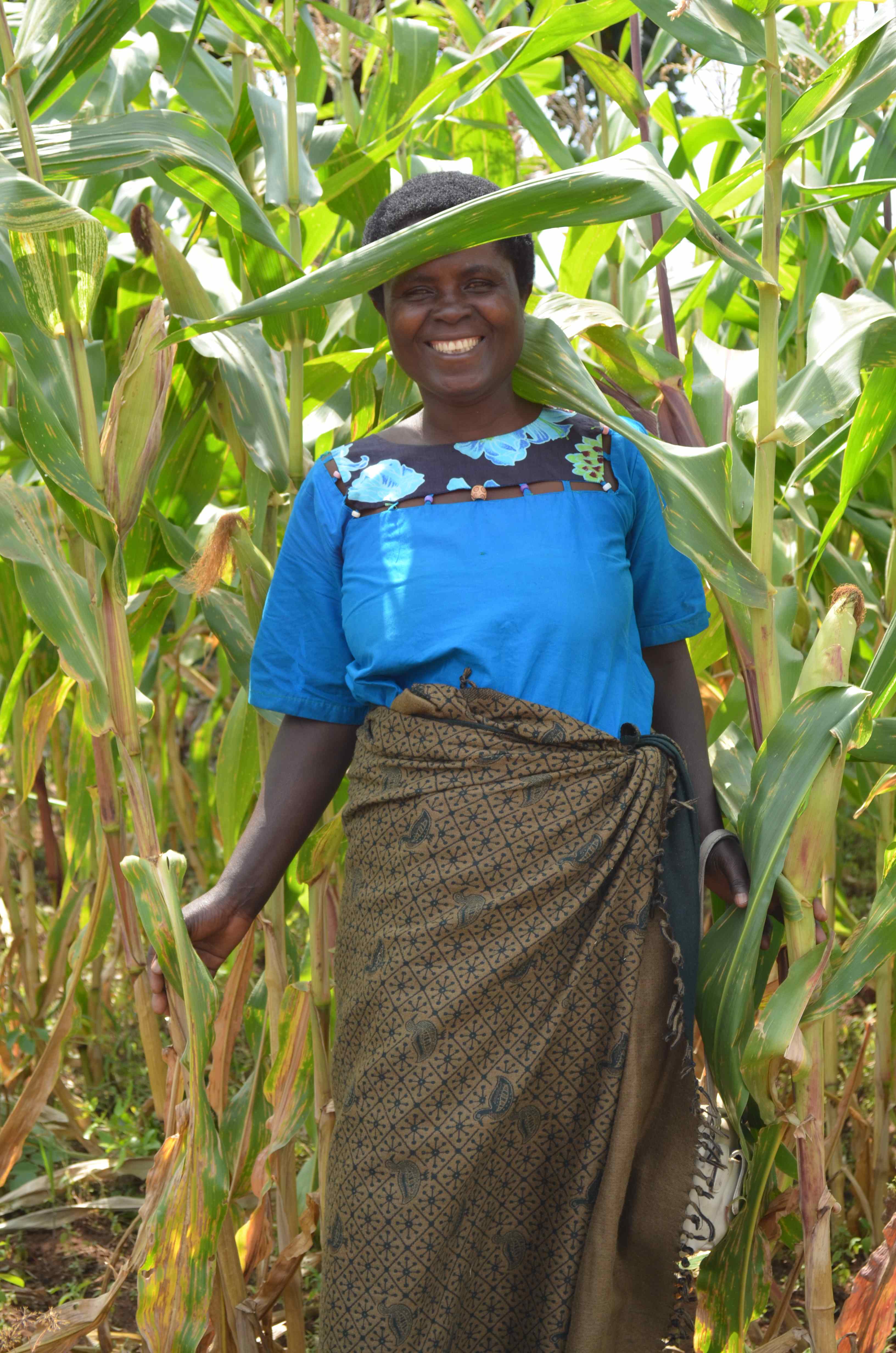 Product Up-scaling interventions: Approved interventions: 56 / Overall volume: CHF 11.80 mio / Approved SCBF contributions: CHF 7.00 mio / Self-contribution by partner financial intermediaries and third parties: CHF 4.8 mio (41%) Product Up-scaling interventions: Approved interventions: 56 / Overall volume: CHF 11.80 mio / Approved SCBF contributions: CHF 7.00 mio / Self-contribution by partner financial intermediaries and third parties: CHF 4.8 mio (41%)
Feasibility Studies: Approved studies: 15 / Overall volume: CHF 2.15 mio / Approved SCBF contributions: CHF 1.39 mio / Self-contribution by partner financial intermediaries and third parties: CHF 0.76 mio (avg 35%) Financial Education Campaigns: Approved campaigns: 9 / Overall volume: CHF 1.92 mio / Approved SCBF contributions: CHF 1.13 mio / Self-contribution by partner financial intermediaries and third parties CHF 0.79 mio. (avg 41%) Highlights since the last newsletter: Myanmar: SME lending
Mexico: digital payment platform
Zimbabwe: microinsurance greenfielding
Myanmar: microinsurance claims optimization
Mexico: digital ROSCA platform  24 Mar 2016 A regional SDC-workshop on vocational skills development (VSD) took place in Colombia in February 2016. It gathered heads of SDC's VSD projects in Latin America and the Caribbean as well as the people responsible for this theme in Embassies/Cooperation Offices. The focus was on school-to-work transitions and on coordination with the private sector. Part of the workshop was held with SDC's gender regional network and addressed the interplays between gender and VSD/employment issues. Presentations and reports (in Spanish) are available here.  23 Mar 2016 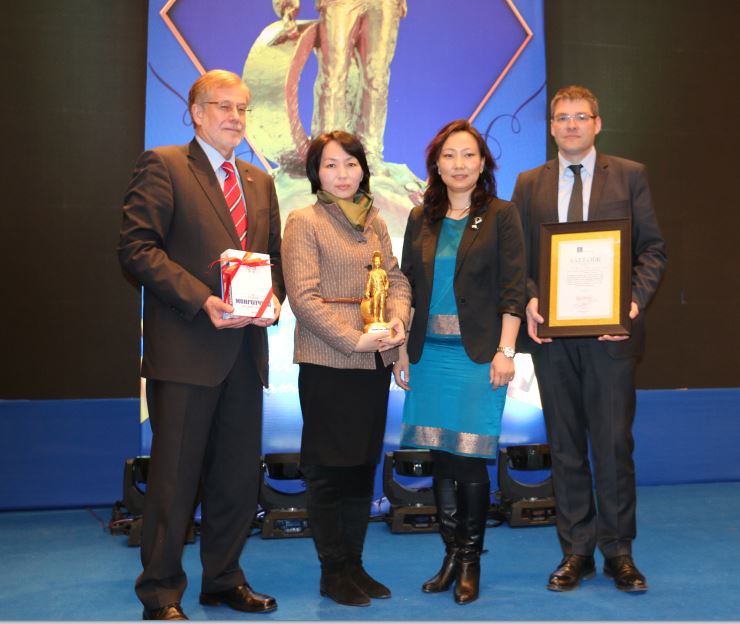 The Ministry of Labour of Mongolia awarded SDC as "The Best Partner Organisation in the Labour Sector", recognising its contribution into the development of the Vocation Education and Training sector in Mongolia. SDC is funding two projects in this sector: Vocational Education and Training Project and the Vocational Skills Development Project. The results of the projects have been recognised by the government and private sector. The new tools and methodologies have been approved by the stakeholders for nation-wide replication. In addition to the hard skills - technical competencies, the Mongolian youth need to build and strengthen the soft- life skills. SDC supports the Life-skills Education through its Youth Development Programme. The Life-skills trainings and channels to deliver it (including the VET schools) to the youth have been highly appreciated by the Ministry of Labour and the local labour offices in the regions. Other partners, such as GIZ and KOICA have been nominated for their long years contributions into the sector. The selection criteria were the significance of results, scope of contribution and innovation. The Ministry of Labour of Mongolia awarded SDC as "The Best Partner Organisation in the Labour Sector", recognising its contribution into the development of the Vocation Education and Training sector in Mongolia. SDC is funding two projects in this sector: Vocational Education and Training Project and the Vocational Skills Development Project. The results of the projects have been recognised by the government and private sector. The new tools and methodologies have been approved by the stakeholders for nation-wide replication. In addition to the hard skills - technical competencies, the Mongolian youth need to build and strengthen the soft- life skills. SDC supports the Life-skills Education through its Youth Development Programme. The Life-skills trainings and channels to deliver it (including the VET schools) to the youth have been highly appreciated by the Ministry of Labour and the local labour offices in the regions. Other partners, such as GIZ and KOICA have been nominated for their long years contributions into the sector. The selection criteria were the significance of results, scope of contribution and innovation.
 21 Mar 2016 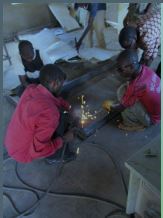 Promoting Market Oriented Skills Training (PROMOST) is a 12 years program started in 2013 in the Western Province of Rwanda. The second phase will start in February 2016 and SDC intends to extend the project to Burundi and the DRC in the medium term. This project combines the building of Vocational Training Centers (VTC), the development of competency-based curricula and the reinforcement of local ownership by strengthening the partnership with and the involvement of the private sector. Read more here. Promoting Market Oriented Skills Training (PROMOST) is a 12 years program started in 2013 in the Western Province of Rwanda. The second phase will start in February 2016 and SDC intends to extend the project to Burundi and the DRC in the medium term. This project combines the building of Vocational Training Centers (VTC), the development of competency-based curricula and the reinforcement of local ownership by strengthening the partnership with and the involvement of the private sector. Read more here.  21 Mar 2016 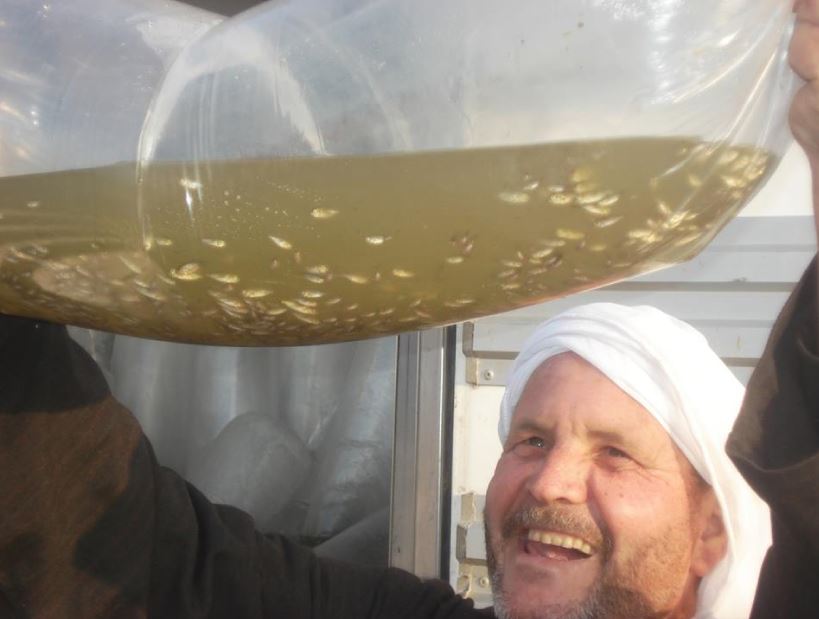 The Embassy of Switzerland's Office for International Cooperation, in collaboration with WorldFish and CARE International, and in coordination with the Egyptian Ministry of Agriculture, is launching a project titled Sustainable Transformation of Egypt's Aquaculture Market System (STREAMS), aimed at boosting production of inexpensive, nutritious and safe fish from sustainable aquaculture systems in Egypt. Press Release The Embassy of Switzerland's Office for International Cooperation, in collaboration with WorldFish and CARE International, and in coordination with the Egyptian Ministry of Agriculture, is launching a project titled Sustainable Transformation of Egypt's Aquaculture Market System (STREAMS), aimed at boosting production of inexpensive, nutritious and safe fish from sustainable aquaculture systems in Egypt. Press Release  21 Mar 2016 In January 2016, the 2nd phase of the project "Formation professionelle: modules pratiques pour renforcer l'employabilité des jeunes" was launched in Tunisia. The project, which is to run until the end of 2020 with a budget of CHF 9.6 Mio, focuses on the integration of young degree holders into the labour market, i.e. by providing them with practical working skills in so-called "entreprise d'entraînement". Unemployment, which is particularly high among young men and women who have completed higher education, has proven to be an important driver of social unrest and instability in Tunisia. The project builds on experiences from the first phase and contains a significant scaling up of these activities. It also includes innovative approaches, such as working with the private sector on creating a working environment that promotes the integration and valorization of young professionals within an organization. The implementing partner of the project is swisscontact.  Issues on the agenda: Result-Based Financing (RBF) using the examples of EnDev and SDC Private sector cooperation using the examples of EnDev and SDC
Energising Development (EnDev) is an energy access partnership currently financed by seven donor countries: the Netherlands, Germany, Norway, Australia, United Kingdom, Switzerland and Sweden. EnDev promotes sustainable access to modern energy services that meet the needs of the poor - long lasting, affordable, and appreciated by users. As of December 2015, EnDev works in 25 countries in Africa, Asia and Latin America. Since 2005, EnDev has facilitated energy access for 15.5 million people, promoting access to Sustainable Energy for All. Objective of the event: Knowledge and strategic discussion with colleagues of SDC. Format: Brief input presentations and a moderated discussion For more information about the event please click here.
Please register for this event here as soon as possible since places are limited ***SDC staff: If the registration form is blocked, please use your private computer or send an email to Jolanda Nasi***
Contact person: Jolanda Nasi NMX - jolanda.nasimauron@eda.admin.ch
![]() The annual Summer Academy of Mesopartner has become an important
capacity-building event for economic development practitioners around the
world. This year the theme of the Summer Academy will be Territorial Economic
Development, with a specific emphasis on green economic development and climate
change implications in territories. For more information and registration The Beam International Conference (19-20 May), preceeded by MSD Training (18 May). The BEAM Conference is a must attend conference for senior-level staffworking in development and utilising, or interested in using, market systemsapproaches to reduce poverty. The conference focuses on evidence, results andinsights and innovative practices and will provide a platform for networking, learningfrom and sharing experiences as well as for influencing the market systemsagenda. In order to get the most out of the event, BEAM is supporting two key market systems focused training sessions on Wednesday, 18 May, the day before the conference officially opens. The training run by MEDA deals with women's economic empowerment and market systems programmes and the training run by HELVETAS deals with how to address youth employment promotion in a systemic manner. Further information and registration Further information and registration The Springfield Center offers the next two-week training programme on Making Markets Work in Bangkok, Thailand.
Closingdate for applications was 18th February 2016
>> download the brochure Two-day course that covers on the first day in-depth key microfinance aspects like financial and social performance, risk management, funding strategies, and selected case studies at the level of microfinance institutions. The second day covers financial and social performance as well as risk management at the level of microfinance investment vehicles
>Read more A one-day course that offers a very intensive overview of microfinance, including a short introduction to microinsurance
>Read more The founding event and symposium of the Donor Committee for dual Vocational Education and Training (DC dVET) is taking place on Thursday 14th of April 2016 in Lucerne (Switzerland). The event will start with the public launch of the Donor Committee. With great pleasure we announce that Ambassador Thomas Greminger, Deputy Director SDC, will host this founding ceremony. In the afternoon at the symposium we will discuss selected questions on dual vocational education and training in development cooperation. Please find more information here. We will be very happy to welcome you at the event and ask you to register by using the Online Registration or via www.dcdualvet.com.
Find the videos of the event here.
Update: All presentation slides are avaiblabe here (german only). This years annual meeting will focus on the use of new media in the field of vocational education. In addition to the workshops and speeches, the book "Exportartikel Berufsbildung? Internationale Bildungszusammenarbeit zwischen Armutsreduktion und Wirtschaftsförderung“ will be launched at the event. Please click here to register for the event. To read the full invitation click here.
The global, cross-sector conference on technology supported learning and training Berlin. For more information click here. Update: Read a summary of the event here. A regional SDC workshop will take place from 29 August to 2 September 2016 in Prishtina, Kosovo. It targets SDC staff and invitees from the Western Balkan Region and will be dealing with Vocational Skills Development. A detailed agenda is currently under development. Participation only upon invitation. Results will be shared within the network. The theme to be explored by this edition is «From Skills to Prosperity – Sharing
Elements of Success». Its focus lies on the international exchange
of successful principles within different VPET systems. Prominent speakers from
both Switzerland and abroad will take part in this congress, including top
political, economic, scientific figures responsible for decision-making on
vocational education and training matters. You find furhter information on the congress here. CEDEFOD European Centre for the Development of Vocational Training [3.6 MB] Small and medium-sized enterprises (SMEs) employ two thirds of the European workforce; one out of three creates new products and processes. They need to secure qualified workers to be competitive. But an unfavourable business environment, burdensome legislation and internal shortfalls make many of them reluctant to engage in training apprentices. Stefanie Kägi for HELVETAS Swiss Intercooperation-HELVETAS Swiss Intercooperation [3.2 MB] This study to capitalise experiences of the Local Market Development project (LMD), which worked in the fruit and vegetable as well as dairy sector, provides insights on the project’s contributions to the market system and resulting achievements. In addition, it contains lessons learned that can be derived from a decade of LMD implementation. Jodie Thorpe, Mar Maestre and Thalia Kidder-BEAM Exchange [822 kB] Programmes with a market systems approach increasingly recognise the important role that women play in market activity and consider women’s economic empowerment as well as gener equality objectives. However, unpaid care work is very often not or not sufficiently consiered. This document describes how the provision of care can be integrated conceptually within a market systems approach. Annick Vollmar for Asocam-Asocam (Annick Vollmar) [8.2 MB] This publication (in Spanish) aims to share experiences, reflections, lessons learnt and guidance resulting from the regional seminar titled “Exchange of experiences in the application of the M4P/MSD approach” in Latin America and the Caribbean. Adam Smith International [4.5 MB] The paper builds on the DCED's guidance on results measurement and its Measuring Women's Economic Empowerment in Private Sector Development: Guidelines for Practitioners.
The main focus of this very practical guide is: who to count as a beneficiary in programs targeting both men and women – and the gendered implications of this choice. The paper also contains several measurement tools and approaches to supplement sex-disaggregated DCED Standard indicators. On p.19 you'll find examples of WEE-specific indicators which are recommended for inclusion into logframes for private sector development projects and programs.
I hope you find this useful for your respective programs. It might be interesting to share and discuss this also with your project partners to make interventions more gender-sensitive and further improve our reporting on WEE.
World Bank The World Bank Group provides monthly updates on job opportunities. If you want to register for that newsletter, go to the link above (blue title) and scroll down to the bottom of the page. OECD If the quality of an education system can never exceed the quality of its teachers, then countries need to do all they can to build a high-quality teaching force. Teaching Excellence through Professional Learning and Policy Reform: Lessons from around the World, the background report to the sixth International Summit on the Teaching Profession, describes the knowledge, skills and character qualities common to the most effective teachers. It examines the education policies and practices that help teachers to acquire these tools, including through induction and mentoring programmes, ongoing professional development activities, student assessments, and collaboration with colleagues. Julia Becker et al.-GIZ [2.5 MB] The Community of Practice Career Guidance (CoP) comprises of seven member projects from Egypt, Indonesia, Kosovo, Mongolia, Palestinian Territories, Rwanda and Serbia as well as German network partners. The Girls’ Days project in Mongolia is a SDC contribution-project. The project supports twelve TVET schools to help improving their quality, while putting a special focus on gender and inclusion. The Girls’ Days are implemented by TVET schools, in cooperation with the Ministry of Labour, school board members, companies and various external stakeholders. SRF Polymechaniker und Schweisstechniker auf Indisch: Franz Probst hat mit seinem Start-up Skillsonics in den letzten drei Jahren 5000 Lehrlinge in Indien nach dem Schweizer Berufsbildungssystem ausgebildet. Die Lehrabgänger erhalten ein vom Schweizer Industrieverband Swissmem anerkanntes Zertifikat und einen offiziellen indischen Berufsabschluss. Zwar sind die Hürden gross, da Indien keine Berufsausbildung kennt – das Potenzial ist indes enorm. «ECO» hat den Wirtschaftsanwalt nach Indien begleitet.
sdc-SDC [5.5 MB] Vocational Skills Development is an important pillar of Swiss Development Cooperation activities. CEDEFOD European Centre for the Development of Vocational Training [620 kB] Opportunities and challenges of a new training frontier. CEDEFOD European Centre for the Development of Vocational Training [3.6 MB] Small and medium-sized enterprises (SMEs) employ two thirds of the European workforce; one out of three creates new products and processes. They need to secure qualified workers to be competitive. But an unfavourable business environment, burdensome legislation and internal shortfalls make many of them reluctant to engage in training apprentices. Richard Walther (ADEA), Christine Uhder (GRET)-ADEA’s Inter-Country Quality Node on Technical and Vocational Skills Development (ICQN/TVSD), with support from AFD and SDC [1.9 MB] This report presents the conclusions of the seminar on the “Financing of Vocational Training” held on 7 and 8 December 2015 in Abidjan. The event was organised by ADEA’s Inter-Country Quality Node on Technical and Vocational Skills Development (ICQN/TVSD), with support from the French Development Agency (AFD) and the Swiss Agency for Development and Cooperation (SDC). The main objective was to add to the information and analysis of the study ADEA/AFD study carried out in 2014 and to help improve inter-fund cooperation at continental level within the framework of the African Network of the Vocational Training Institutions and Funds (RAFPRO). South Asia Devision SDC-SDC [687 kB] The SDC South Asia Division is pleased to share a brief account of the Employment Fund in Nepal. The project has devised innovative methods to lower access barriers to the labor market for disadvantaged groups through tailor-made vocational education and training. Ministry of Labour (Myanmar), SDC, Inbas, Swisscontact [878 kB] This technical discussion paper is analysing current practices of different types of apprenticeships and other forms of in-company training in Myanmar. It is aimed at drawing lessons learnt and is based on studies on apprenticeships and in-company training recently prepared. |
